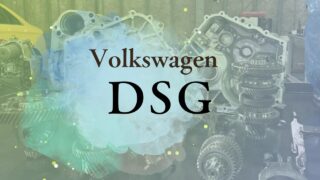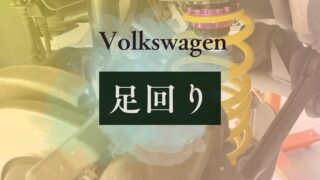Volkswagen (VW) vehicles are admired for combining impressive performance with great fuel efficiency.
A key part of this is the turbocharger.
To achieve high power output from small-displacement engines, many modern VW models use turbochargers.
However, because a turbo operates under extreme heat and pressure, it’s also prone to failure if not maintained properly.
This guide explains the common symptoms, causes, risks, repair costs, and prevention tips for turbocharger problems in VW vehicles.
VW Engine Problem Guides
What Is a Turbocharger?
A turbocharger uses exhaust gases to spin a turbine, forcing more air (and oxygen) into the engine.
This allows smaller engines to produce more power efficiently.
VW’s popular TSI engines use turbo technology to deliver fast acceleration, better fuel economy, and smooth driving.
Symptoms of Turbocharger Problems
If you notice any of these signs, your turbo may be failing:
1. Loss of Acceleration
The most common symptom. Sluggish response or poor acceleration indicates reduced boost.
2. Unusual Noises (Whining or Metallic Sounds)
A high-pitched “whine” or scraping noise may signal a damaged turbine wheel or internal failure.
3. Colored Exhaust Smoke
- Black smoke: Incomplete combustion
- Blue smoke: Oil leaking into the combustion chamber from worn seals
4. Sharp Drop in Fuel Economy
A malfunctioning turbo disrupts air-fuel balance, wasting fuel and reducing MPG.
5. Check Engine Light (CEL)
Modern VW models trigger a CEL if the turbocharger system detects irregularities.
Driving under this condition can cause further damage.
Main Causes of VW Turbocharger Failure
• Poor Lubrication (Oil Issues)
Turbo bearings and shafts depend on high-quality oil.
Using degraded or insufficient oil can cause catastrophic damage.
• Carbon Buildup
Carbon deposits can restrict airflow and reduce boost pressure, leading to poor acceleration or warning lights.
• Worn Oil Seals
Aging seals allow oil to leak into the turbo and engine, causing blue smoke and poor performance.
• Foreign Object Damage
Debris entering the intake system can damage turbine blades.
Neglected or dirty air filters increase this risk.
What Happens If You Ignore Turbo Problems?
Ignoring early signs can lead to:
In extreme cases, you may need full engine rebuilds or replacements along with turbo repair.
Typical VW Turbocharger Repair Costs
| Service | Estimated Cost (incl. tax) | Notes |
|---|---|---|
| New turbocharger replacement | ¥200,000–400,000 ($1,350–2,700) | Depends on model & year |
| Rebuilt turbo replacement | ¥120,000–250,000 ($800–1,700) | Lower cost with refurbished parts |
| Turbo overhaul | ¥100,000–180,000 ($670–1,200) | Includes parts & labor |
| Oil line cleaning/replacement | ¥30,000–60,000 ($200–400) | Essential for long-term protection |
| Intercooler cleaning | ¥10,000–30,000 ($70–200) | Prevents carbon buildup |
| Intake/exhaust cleaning | ¥20,000–50,000 ($135–335) | Helps prevent future issues |
Repairs at independent VW specialists can sometimes be more affordable than dealership prices.
How to Prevent Turbocharger Problems
You can’t completely prevent turbo wear, but good habits reduce risk:
• Regular Oil Changes
Even with long-life oil, change oil every 10,000 km (6,000 miles) or yearly.
• Cool Down After Driving
Let the car idle 30 seconds to 1 minute after hard driving to cool the turbo gradually.
• Periodic Inspections
Have your VW checked by a specialist at least once a year for early warning signs.
• Change Air Filters Regularly
A clean air filter prevents debris from damaging the turbine.
Conclusion: A Healthy Turbo Delivers Big Performance
Volkswagen turbochargers deliver the perfect blend of power and efficiency—but they require proper care.
Address any strange noises or performance drops early to avoid costly repairs.
A well-maintained turbo provides faster acceleration, excellent fuel economy, and driving fun.
If something feels off, consult a VW expert right away.
Your VW will reward you for your attention with reliable performance for years to come.
VW Engine Problem Guides








コメント